Vital Hasson, the Jew who worked for the Nazis, hunted down refugees and tore apart families in WWII Greece
Published in Political News
I learned a lesson when conducting research for my book, “Family Papers: a Sephardic Journey Through the Twentieth Century.” I had discovered the story of a young Jewish man forgotten to history until now, a story that taught me that neither cultural affiliation nor family history is a reliable predictor of future behavior. In short, identity is not destiny, and all of us can fall prey to the tides of history.
Vital Hasson was a native of Thessaloniki, Greece, a cultural capital of the Sephardic Jewish world and a city that once boasted a majority Jewish population, who knew their home as Salonica. He came from an educated, middle-class family of journalists, writers, educators and political leaders.
But Hasson diverged, fatally, from his family’s enlightened values.
Hasson became intoxicated by a populist regime and chose to be swept up by its violence, its false promises, its hatred. He used a position of power to degrade the vulnerable. He was publicly denounced by family for his excesses. After the Second World War, Hasson was the only Jew in all of Europe to be tried and executed by a state, Greece, for collaborating with the Nazi occupiers.
Hasson’s family, like most of the Sephardic Jews of Salonica, were descended from Jews expelled from Iberia in the 15th century who spoke and wrote in a Judeo-Spanish language known as Ladino. For five centuries, they called the Ottoman Empire, southeastern Europe and Salonica home.
But before the war he was not important, “less than nothing,” according to one of the dozens of Jewish survivors who would subsequently testify against him.
When his city was still Ottoman, in the 1870s and 1890s, his great-grandfather introduced the first French- and Ladino-language newspapers to Salonica, chronicling and shaping modernity as it was experienced by southeastern European Jews.
In time, war redrew borders around the family, transforming them from Ottomans to Greeks. Emigration pulled them in many directions, with cousins relocating to England, France, Spain, Portugal, India and Brazil. Hasson himself moved to Palestine for a time, returning to his native town in 1933.
Then, war came, transforming Hasson from a nonentity to an important person.
Four generations of Hasson’s family were living in Salonica when German forces occupied the city in April 1941. Two years later, Hasson assumed the position of head of the Jewish police of Salonica under ambiguous circumstances.
The position gave him authority over about 200 unarmed men, all local Jews. Among Hasson’s first acts was to volunteer himself as a human bounty hunter, exceeding his charge.
In May 1943, he crossed from German-occupied Greece into Italian-occupied Greece in pursuit of Salonican Jews fleeing the Nazis, whom he was uniquely qualified to identify. His efforts were thwarted, but it hinted at the lengths he was willing to go to satisfy those in power.
When a ghetto was created within Salonica by the Nazis, the depth of Hasson’s depravity made itself known. The Baron Hirsch ghetto, one of two areas in which all Jews were concentrated, existed from March to August 1943, by which time Nazi officials completed the deportation of Greek Jewry.
Within the ghetto’s wooden walls, which were surrounded by barbed wire and control towers, more than 2,000 Jewish women, men, and children were crammed into 593 rooms. Disease and crime were rampant.
A 23-year-old German SS officer was technically in charge of the Baron Hirsch ghetto. But Hasson appears to have been granted great latitude to execute Nazi orders on the ground. Recollections of Hasson’s actions, which swirl through Greek-, Hebrew-, Ladino- and English-language survivor testimony, are nightmarish.
Hasson, it was said, raced through the ghetto in a horse-drawn carriage, and made his fellow Jews sweep the streets. He strutted about, using the glistening boots of the occupiers to knock down both doors and people. He stole from the imprisoned, carrying around the ghetto an open bag into which women and men were expected to place what jewels or money they had managed to hang on to. And he identified young men to be inducted into forced labor.
In the words of one survivor, a woman by the name of Bouena Sarfatty, “He was like a lion let out of a cage.”
Hasson reserved particular cruelty for girls and women. He forced them to strip naked, searched their genitals for hidden money, sheared their hair, raped them and pimped them to others.
To protest her forced marriage to Hasson’s brother Dino, who long harbored an obsession with the young woman, Sarika Gategno wore the same dress for three months and consumed nothing but alcohol and cigarettes.
From March to August 1943, Nazi overseers directed 19 transports of Salonica’s Jews, totaling 48,533 souls, to depart from the train station adjacent to the Baron Hirsch ghetto. One of these trains would head for the concentration camp of Bergen-Belsen; 18 for Auschwitz.
The journey to Auschwitz took between five and eight grueling days. Nearly all the Salonican Jews brought there were gassed upon arrival.
On Aug. 2, a special deportation carried away the families of Salonica’s wartime Jewish community leadership (including the Jewish police) to the concentration camp at Bergen-Belsen. Before his own deportation, on this very train to Bergen-Belsen, Hasson’s father publicly disowned his son, who yet remained in Salonica.
By August 1943, Salonica, like Greece as a whole, had been virtually emptied of Jews by the Nazis.
Hasson himself arranged to flee eastward with his wife, daughter and pregnant lover in August 1943.
Several times in the dramatic, confused weeks and months that followed, he was recognized by Jewish refugees from Salonica (in Albania, Italy and Egypt) and arrested by Allied representatives, but amidst the chaos of war Hasson repeatedly escaped or was released.
Finally, upon the liberation of Greece in October 1944, the British captured him and returned Hasson to Greece for trial. In the summer of 1946 that trial, a sensational event that gripped the city of Thessaloniki and the Salonican Jewish diaspora, resulted in a guilty verdict. Hasson was sentenced to death and executed.
Jews across the political spectrum, from Bernie Sanders to Benjamin Netanyahu, claim to seek inspiration in Jewish tradition to explain and propel their political values.
But cultural inheritance does not necessarily determine a person’s behavior or destiny. And Jewish history ought not be sanitized. What Hasson’s story teaches is that under the right circumstances, the politics of hate are seductive, even to those who might otherwise be a target.
[ You’re smart and curious about the world. So are The Conversation’s authors and editors. You can get our highlights each weekend. ]
This article is republished from The Conversation, a nonprofit, independent news organization bringing you facts and trustworthy analysis to help you make sense of our complex world. It was written by: Sarah Abrevaya Stein, University of California, Los Angeles
Read more:
Inside new refugee camp like a ‘prison’: Greece and other countries prioritize surveillance over human rights
How the British navy hid the heroic voyage of crippled second world war submarine HMS Triumph
Chile has a growing Muslim community – but few know about it
Sarah Abrevaya Stein does not work for, consult, own shares in or receive funding from any company or organization that would benefit from this article, and has disclosed no relevant affiliations beyond their academic appointment.

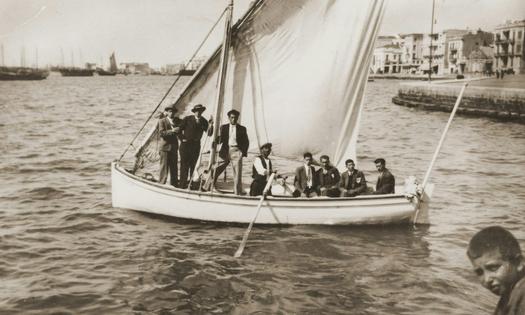
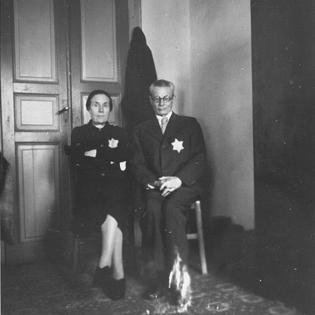
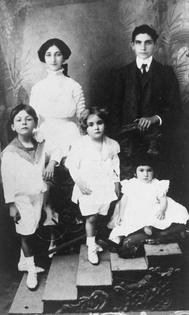
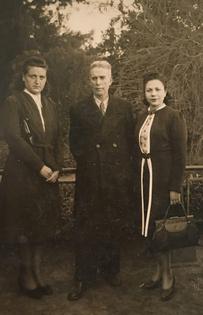
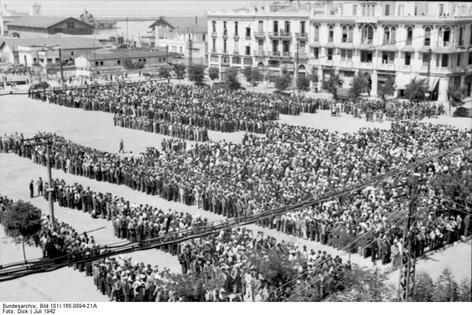
































































Comments